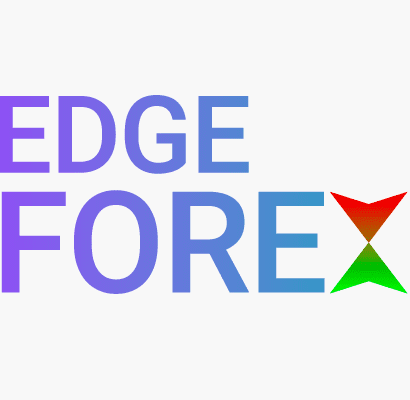Trump Dollar Policy Sparks Debate Among Wall Street Strategists
by Kashish Murarka · July 23, 2024
The Trump Dollar Policy has ignited a significant debate among Wall Street strategists. Despite former President Donald Trump’s recent comments favoring a weaker US currency, many experts believe his policies would strengthen the dollar. This contradiction has led to diverse opinions on the potential impact of his return to the presidency on the US dollar. As the conversation unfolds, key aspects such as a strong US dollar, trade tariffs impact, currency intervention, and Federal Reserve independence come into play.
Trump’s Comments and Market Reactions
Recently, Trump expressed concerns about the strength of the greenback, suggesting that it hurts American competitiveness. This stance is not new; he maintained similar views during his first term. However, his remarks have caused the dollar to dip by 1.6% since reaching an eight-month high in late June. Despite this short-term decline, Wall Street strategists argue that the Trump Dollar Policy will ultimately lead to a stronger US dollar.
For instance, Deutsche Bank stated that engineering a softer greenback would be very challenging. It would require trillions of dollars in intervention or policies aimed at encouraging massive US capital outflows. Similarly, Morgan Stanley’s James Lord believes that Trump’s proposed policies would push the dollar up. These strategies include trade tariffs, which have strong implications for the dollar’s value.
Trade Tariffs Impact on the Dollar
The trade tariffs impact is a crucial component of the Trump Dollar Policy. Trump’s tariffs on foreign goods aim to protect American industries but also tend to drive the dollar’s strength. Barclays Plc suggested that the recent weakness in the dollar presents an opportunity to re-enter long trades. The bank’s strategists, including Themistoklis Fiotakis, noted that tariffs could boost the dollar by up to 4% against currencies like the Chinese yuan.
Even if trading partners retaliate, the tariffs could still result in a stronger US dollar. This is because tariffs raise risks for the global economy, leading to increased demand for the dollar as a safe-haven currency. The strong US dollar, in this context, reflects the market’s response to heightened economic uncertainties.
The Challenge of Currency Intervention
Currency intervention is another aspect where opinions diverge. Deutsche Bank emphasized the difficulty of sustainably altering the exchange rate trajectory through intervention. Even if the Trump administration attempts to weaken the dollar, significant challenges remain. The unique status of the US dollar as the world’s reserve currency creates a structural bid for the dollar, making devaluation efforts less effective.
Moreover, Morgan Stanley’s James Lord pointed out that most investors share the view that tariffs will lead to a stronger dollar. While Trump could attempt currency intervention, the scale required to impact the dollar’s value sustainably is enormous. Therefore, the likelihood of successful currency intervention under the Trump Dollar Policy remains low.
Federal Reserve Independence
Federal Reserve independence plays a critical role in the Trump Dollar Policy debate. Trump has previously criticized the Federal Reserve, suggesting that curbing its independence could help weaken the dollar. However, governmental checks and balances make this route highly challenging. Eroding the Fed’s credibility would be a starting point, but it would not be sufficient to devalue the dollar significantly.
Dario Perkins, managing director at TS Lombard, highlighted the inherent difficulty in devaluing the US currency compared to other governments. The Federal Reserve’s independence ensures that monetary policy decisions are insulated from political pressures, maintaining the dollar’s stability. Therefore, any attempt to weaken the dollar by compromising Federal Reserve independence would face substantial hurdles.
Long-Term Drivers of Dollar Strength
Several long-term drivers continue to buoy the US currency, despite short-term fluctuations. Barclays strategists noted that factors like weakening global growth will support a strong US dollar. As global economic conditions deteriorate, investors flock to the dollar for its perceived safety and stability. This trend is likely to persist regardless of Trump’s policies.
Moreover, the strong US dollar reflects the underlying strength of the American economy. While Trump’s comments might cause temporary dips, the broader market dynamics favor a resilient dollar. The trade tariffs impact, combined with structural factors, ensures that the dollar remains robust in the long term.
Implications for Global Trade
The Trump Dollar Policy has significant implications for global trade. A stronger US dollar makes American goods more expensive abroad, potentially hurting export competitiveness. However, it also reduces the cost of imports, benefiting American consumers. This dynamic creates a complex interplay between domestic economic interests and global trade relationships.
Wall Street strategists argue that the trade tariffs impact will be the dominant market outcome. Despite Trump’s preference for a weaker dollar, his policies are more likely to strengthen it. This outcome underscores the complex nature of currency markets, where policy intentions do not always translate into expected results.
Conclusion
In conclusion, the Trump Dollar Policy has sparked a vigorous debate among Wall Street strategists. Despite Trump’s recent comments favoring a weaker US currency, many experts believe his policies will strengthen the dollar. Key factors include the trade tariffs impact, challenges of currency intervention, and the role of Federal Reserve independence. Long-term drivers such as weakening global growth also support a strong US dollar.
As the debate continues, it is clear that the interplay between policy and market dynamics is complex. The strong US dollar reflects not just immediate policy decisions but also broader economic trends. Therefore, understanding the Trump Dollar Policy requires a nuanced analysis of various influencing factors. Whether Trump’s policies will ultimately result in a stronger or weaker dollar remains a topic of ongoing discussion among Wall Street strategists.
Click here to read our latest article Harris Campaign Faces Scrutiny
This post is originally published on EDGE-FOREX.
